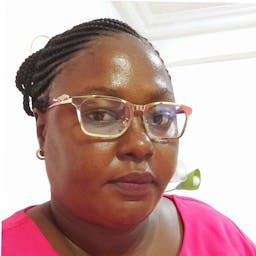Maltreatment of corpses!
Jan 21, 2015
Story
by Nakinti Nofuru Reporter
Wednesday - June 20, 2012
BAI KUKE, CAMEROON – At the center of Bai Kuke village in southwestern Cameroon stands a dilapidated wooden house. The fallen planks from the house’s exterior reveal the living room.
The living room is almost bare, with just two, old, wooden benches lining the walls. Doors without curtains lead to other rooms.
A long corridor connects the living room to the backyard of the house, where several children between the ages of 2 and 15 play happily in the muddy yard, next to the house’s wooden kitchen. Inside this kitchen sits Paulina Mosaka, a 73-year-old widow, peeling plantains to cook for the countless grandchildren who are living with her.
Mosaka uses her walking stick to inch gingerly to the other end of the kitchen to grab a seat for her visitor. Chronic waist pain afflicts her gait. She carries the little chair along with her and places it on the veranda of the kitchen.
She herself sits down gently on the bare earth floor. At the mention of her late daughter, who recently died during childbirth, Mosaka cries in pain, wiping her teary eyes and watery nose with one end of an old cloth.
“Ma pickin, this place wey we shidon so, na for dey wey Rebecca be sleep die body, for down here so, like say yi be be na beef,” she says in Pidgin English, bursting into tears again.
She says that this is the exact spot where her late daughter, Rebecca, was laid the day she died, as if she were a dead animal. She struggles to find the words in her old age, while she cries like a child.
She summons her other daughter to continue the “bad luck” story.
Her daughter, Penda Mokossa, 36, is married with six children, who range in age from 9 months to 11 years old. She recounts the story behind the death of her sister.
“They said my sister died of witchcraft because she died in labor,” Mokossa says.
Her sister died at age 30 in the hands of a traditional midwife after more than 14 hours of labor. Mokossa attributes her sister’s death to negligence resulting from poverty.
“My sister is a mother of seven children,” Mokossa says. “She died when she was about to give birth to the eighth child. She did not attend antenatal clinic even for one day because she did not have money to attend clinic.”
But she says that the community attributed her death to “swine witchcraft.”
In the Oroko ethnic community of southwestern Cameroon, it is a traditional belief that swine mystically inhabits the stomachs of some women, who are capable of witchcraft and morph into swine at night. When these women become pregnant, they give birth to baby swine in the bushes and risk losing their lives if they try to deliver their babies in the real world.
Following this belief, many label women who die during childbirth as witches. These women don’t receive a traditional burial.
Mokossa says that when her sister died at about 5 a.m., they carried the corpse to the house and placed it on a bed inside one of the rooms. When community members came to pay their respects, custodians of tradition drove them away.
Women who die during childbirth do not deserve visitors or a proper burial because of their involvement with witchcraft, according to tradition. The custodians told the family that such corpses may not stay inside the house, as is custom in standard burials. Rather, they lay the naked corpse outside on the ground, with just a cloth to cover the woman.
Read more: http://globalpressinstitute.org/global-news/africa/cameroon/maltreatment...




